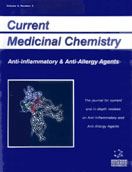Abstract
Gene vaccines against defined antigens represent a novel and promising immunization approach for cancer immunotherapy and for battling infectious diseases. Immunization with plasmid DNA is the simplest gene-based approach. In order to induce protective antitumor immunity, gene vaccines are designed to deliver one or several genes encoding tumor-associated antigens, thereby eliciting or augmenting antigen-specific immune responses. The efficacy of gene vaccines can be significantly improved through integration of advances in immunology and molecular biology. Recent evidences point out the central role of dendritic cells and show the importance of innate immune responses in the induction and enhancement of antigen-specific adaptive immune responses. Hence, manipulations that integrate both tumorassociated antigens and danger signals in the vaccine design, can achieve activation of both innate and adaptive immune responses, thereby overcoming the self-tolerance towards many tumor antigens. Coadministration of genetic adjuvants and optimized prime-boost strategies enhance the efficacy of gene vaccines. In this context, strategies that target antigens of choice to dendritic cells and induce, in vivo, antitumor immune responses are discussed. This review highlights vaccine strategies based on transfer of nucleic acid sequences encoding well-defined tumor-associated antigens and genetic adjuvants to the host in vivo in order to induce successful antitumor immunity.
Keywords: gene vaccines, dna vaccination, rna, prime-boost, cancer immunotherapy
 7
7

